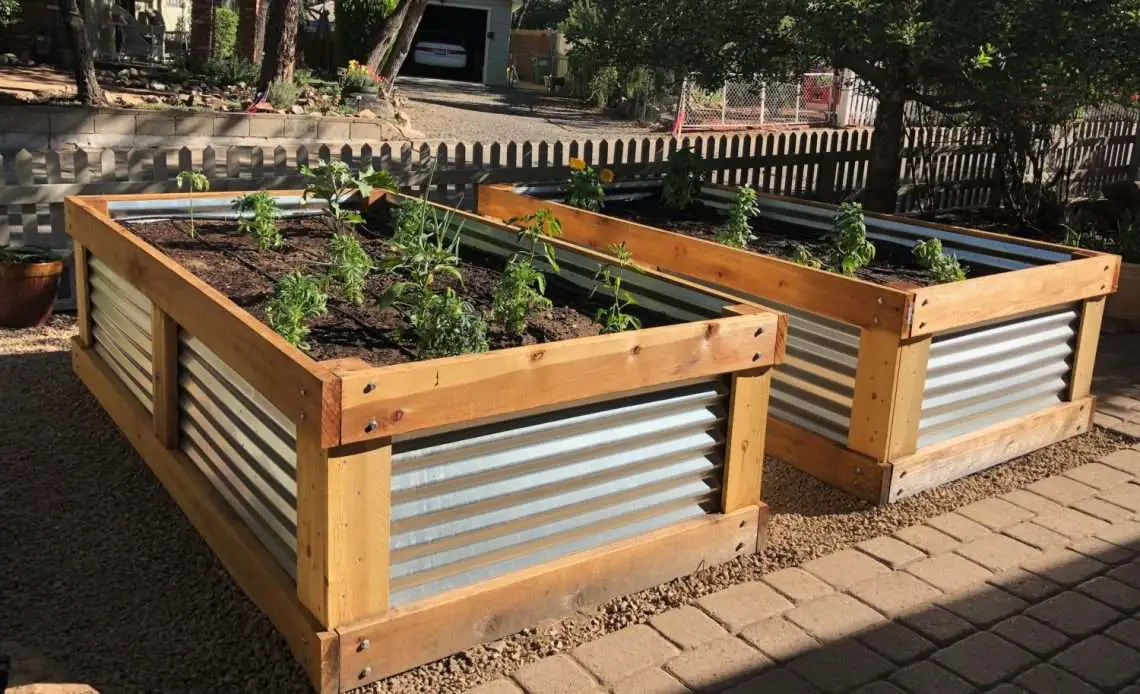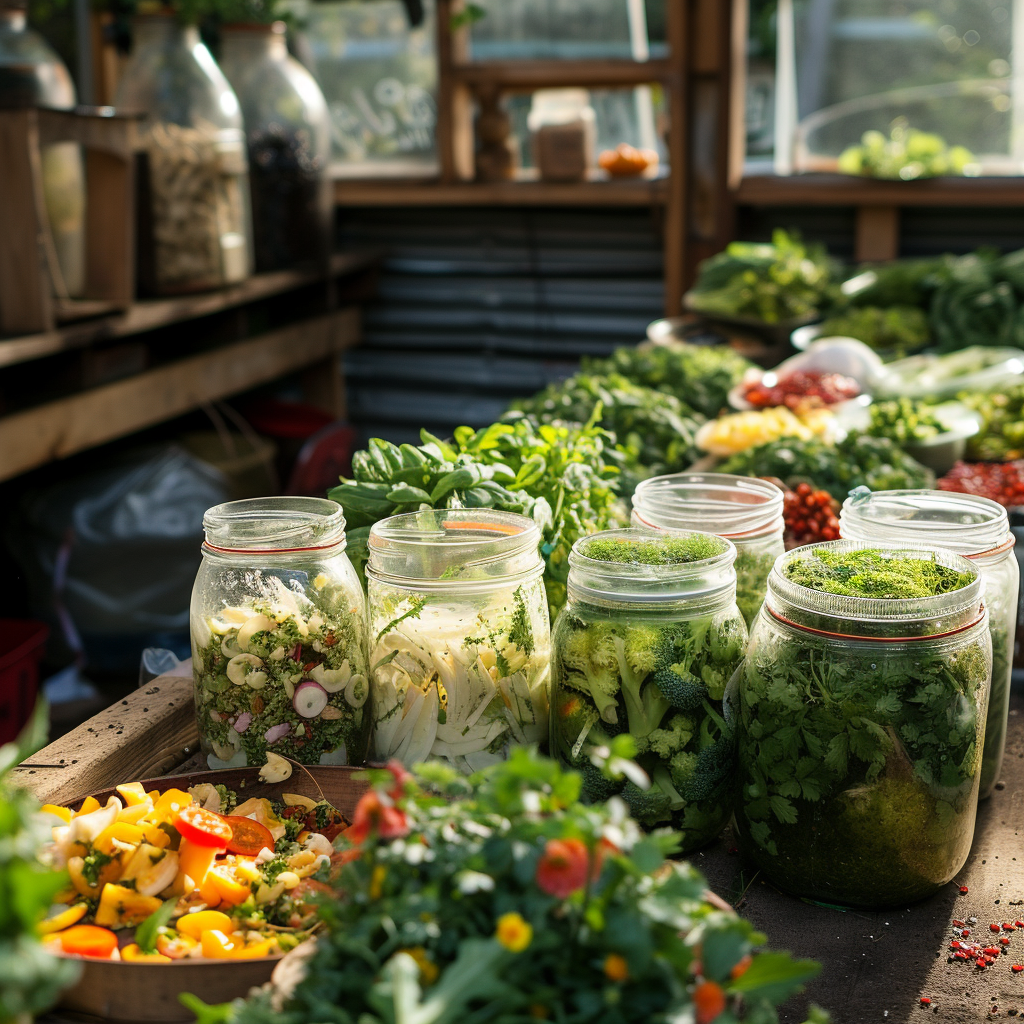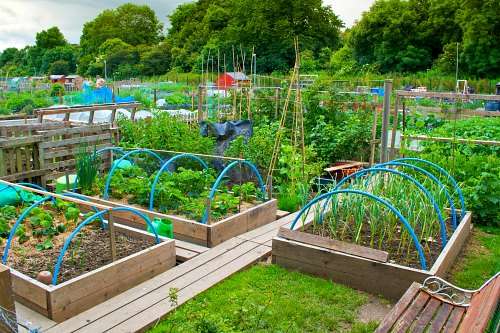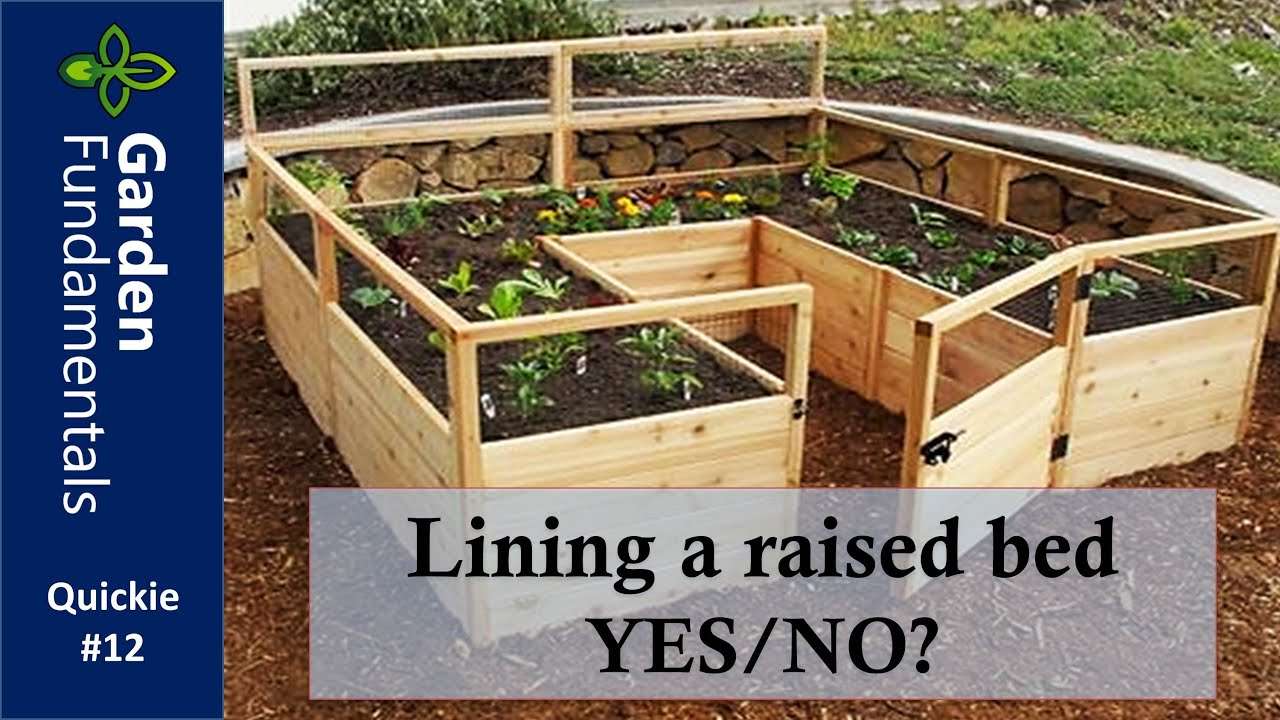Are metal raised beds safe for gardening? In this article, we will explore this question and provide you with more information on the subject. We will discuss the benefits of metal raised beds, potential risks, and ways to ensure safety. Whether you’re an avid gardener or interested in off-grid living, this article will help you make an informed decision about metal raised beds. So, let’s dive in and explore the safety of metal raised beds for gardening!
Are Metal Raised Beds Safe for Gardening?
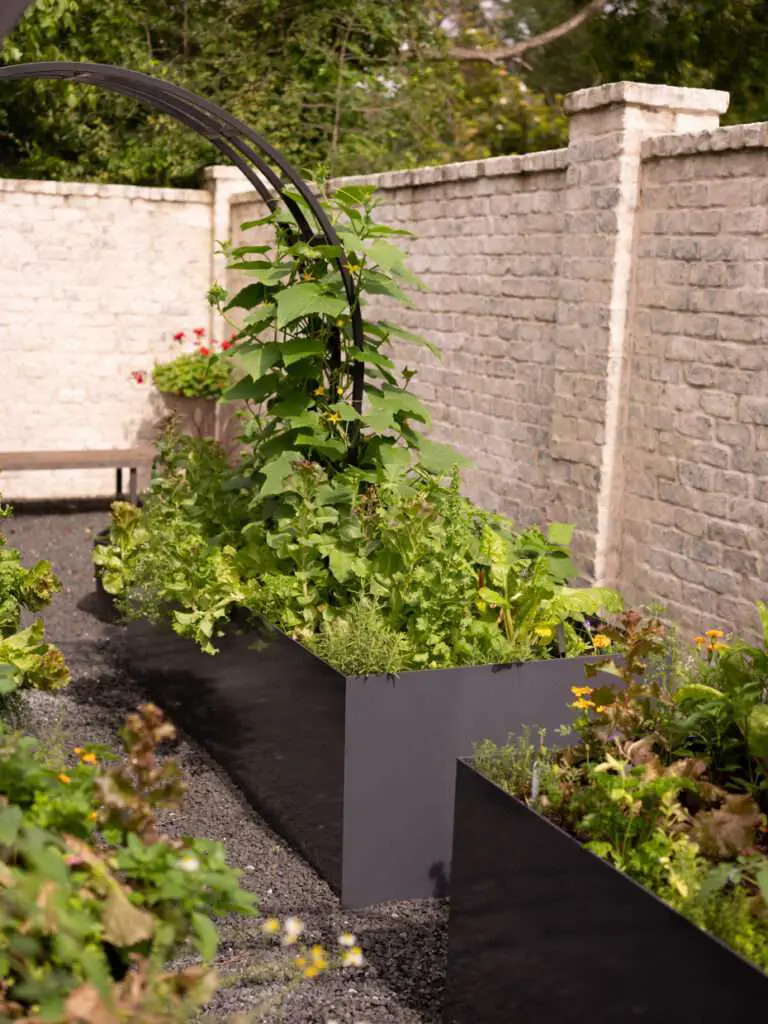
Off Grid Living
The Concept of Off Grid Living
Off-grid living refers to the lifestyle of living without reliance on public utilities, such as electricity, water supply, or gas. This lifestyle involves self-sufficiency and finding alternative methods to meet one’s basic needs. Off-grid living creates a sense of independence, sustainability, and minimal environmental impact.
Benefits of Off Grid Living
- Energy Independence: By generating your own electricity through solar panels or wind turbines, you become less dependent on public utilities and reduce your carbon footprint.
- Cost Savings: Off-grid living eliminates monthly utility bills, allowing for long-term financial savings.
- Environmental Sustainability: By relying on renewable energy sources and minimizing water usage, off-grid living minimizes the environmental impact.
- Self-Sufficiency: Living off-grid encourages self-reliance, as individuals learn to grow their own food, conserve resources, and manage their waste.
- Connection with Nature: Off-grid living often means living in rural or remote areas, providing individuals with the opportunity to connect with nature and experience a slower-paced lifestyle.
Challenges of Off Grid Living
- Initial Investment: Setting up an off-grid system can require a significant upfront investment for purchasing solar panels, wind turbines, batteries, and other essential equipment.
- Maintenance: Off-grid systems require regular maintenance to ensure proper functioning and longevity.
- Limited Resource Availability: Living off-grid may require individuals to be conscious of resource consumption, such as water usage, and adapt their lifestyle accordingly.
- Reliance on Weather Conditions: Generating power through renewable energy sources is dependent on weather conditions, which may pose challenges during cloudy days or low wind periods.
- Limited Access to Amenities: Living off-grid may mean having limited access to amenities such as grocery stores, healthcare facilities, and internet connectivity.
Gardening
Importance of Gardening
Gardening is not only a rewarding and enjoyable hobby, but it also offers numerous benefits to individuals and the environment. It allows you to grow your own fresh and organic produce, adds beauty to your surroundings, and provides mental and physical health benefits.
Types of Gardening
- Traditional In-Ground Gardening: This is the most common type of gardening, where plants are grown directly in the ground using native soil.
- Container Gardening: Ideal for those with limited outdoor space, container gardening involves growing plants in pots or containers filled with potting soil.
- Raised Bed Gardening: Raised beds are constructed above ground, creating a contained area for growing plants. They can be made from a variety of materials, including wood, plastic, concrete, and metal.
Benefits of Gardening
- Fresh and Nutritious Produce: Gardening allows you to have access to fresh and nutrient-rich fruits, vegetables, and herbs.
- Physical Exercise: Engaging in gardening activities, such as digging, planting, and weeding, provides a moderate-intensity workout that promotes physical health.
- Stress Reduction: Spending time in nature and engaging in gardening activities has been shown to reduce stress, anxiety, and improve overall mental well-being.
- Environmental Stewardship: By growing your own food, you reduce reliance on commercially grown produce, which often involves the use of pesticides, herbicides, and long transportation distances.
- Connection with Nature: Gardening provides an opportunity to connect with nature, observe the growth process, and develop a deeper appreciation for the environment.
Challenges of Gardening
- Climate and Weather Conditions: Gardening success is often dependent on climate and weather conditions, making it necessary to adapt planting choices and techniques accordingly.
- Pest and Disease Management: Dealing with pests and diseases that can damage or destroy plants requires ongoing vigilance and knowledge of effective control methods.
- Time and Effort: Gardening requires regular time and effort for tasks such as watering, weeding, and maintaining the overall health of the garden.
- Limited Space: Those with limited outdoor space may face challenges in finding adequate space for gardening, but container gardening and vertical gardening offer solutions to this challenge.
- Lack of Experience and Knowledge: Beginners may face a learning curve when it comes to understanding plant care, soil requirements, and proper gardening techniques.
Are Metal Raised Beds Safe?
Introduction to Metal Raised Beds
Metal raised beds are a popular choice among gardeners due to their durability and visual appeal. They are often made from materials such as galvanized steel or aluminum, which provide structural support and resistance to rot, pests, and harsh weather conditions.
Advantages of Metal Raised Beds
- Durability: Metal raised beds are highly durable and can last for many years without the need for replacement or extensive maintenance.
- Protection from Pests: Metal raised beds offer better protection against burrowing pests, such as rodents, compared to wooden or plastic counterparts.
- Warmer Soil: Metal can absorb and retain heat from the sun, which helps to warm up the soil in the raised bed, allowing for an extended growing season.
- Aesthetically Pleasing: Metal raised beds can add a modern and sleek look to any garden, enhancing its overall visual appeal.
- Versatility: Metal raised beds come in various sizes and shapes, allowing gardeners to customize their garden layout according to their preferences and available space.
Disadvantages of Metal Raised Beds
- Heat Retention: While the ability of metal raised beds to retain heat can be advantageous, it can also lead to overheating of the soil during hot summer months, potentially causing plant stress or damage.
- Limited Insulation: Metal does not provide the insulation that other materials, such as wood, offer. This can result in temperature fluctuations within the raised bed, affecting plant growth.
- Initial Cost: Metal raised beds tend to be more expensive than their wooden or plastic counterparts, which may be a consideration for budget-conscious gardeners.
- Corrosion: Over time, metal raised beds can develop rust or corrosion, which may require maintenance, such as sanding and repainting, to prevent further deterioration.
- Conductivity: Metal has high conductivity, meaning it can transfer heat or cold quickly. In areas with extreme temperatures, this can affect root development and plant growth.
Safety Concerns of Metal Raised Beds
When it comes to gardening with metal raised beds, there are several potential health risks and safety concerns that need to be considered.
Introduction to Health Risks
Health risks associated with metal raised beds primarily stem from two sources: metal leaching into the soil and potential contamination from previous use of the metal.
Metal Leaching into Soil
Certain metals used in the construction of raised beds, such as zinc and copper, can leach into the soil over time. This leaching can lead to an increase in metal concentrations in the soil, potentially affecting plant health and the safety of harvested produce.
Potential Contamination from Previous Use
If the metal used in the raised bed has been previously used for industrial or non-food-related purposes, it may contain residues or contaminants that can pose a risk to plant growth and human health. It is essential to ensure that the metal used for the raised bed is food-safe and free from any harmful substances.
Exposure to Harmful Chemicals
Metal raised beds painted or coated with non-food-safe paints or coatings can introduce harmful chemicals into the garden environment. These chemicals can contaminate the soil, plants, and eventually, the food produced.
Methods to Mitigate Health Risks
Using a Barrier Between Metal and Soil
To prevent metal leaching into the soil, gardeners can use a barrier, such as landscape fabric or a food-grade liner, between the metal raised bed and the soil. This barrier acts as a protective layer, preventing direct contact between the metal and the soil.
Choosing High-Quality Metal Raised Beds
Selecting raised beds made from high-quality materials, such as food-grade galvanized steel or aluminum, can reduce the risk of metal contaminants leaching into the soil. It is important to do thorough research and choose reputable manufacturers or suppliers.
Proper Maintenance and Cleaning
Regular maintenance and cleaning of metal raised beds can help prevent rust, corrosion, and deterioration. This includes wiping down the surfaces, removing any debris or organic matter, and applying a protective coating, such as food-safe paint or sealant, if necessary.
Testing the Soil and Plants for Contaminants
Periodically testing the soil and plants for metal contaminants can provide valuable information about the safety and quality of the garden. Soil testing kits or laboratory analysis can help identify any potential risks and guide appropriate actions if contamination is detected.
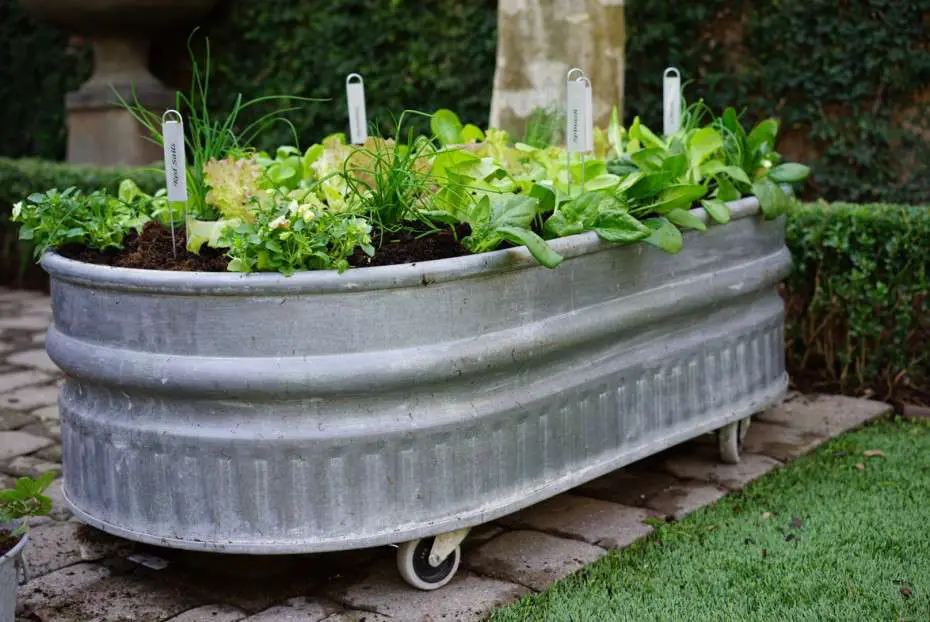
Other Considerations for Metal Raised Beds
Longevity and Durability
One of the significant advantages of metal raised beds is their longevity and durability. Unlike wooden beds that may eventually rot or plastic beds that can become brittle, metal beds can withstand harsh weather conditions and offer long-term use.
Aesthetic Appeal
Metal raised beds can add a modern and sophisticated look to any garden. Their clean lines and sleek design can enhance the overall aesthetic appeal of the outdoor space.
Availability and Cost
Metal raised beds are readily available in garden centers, online stores, and home improvement retailers. While they may be more expensive initially, their durability and long lifespan can make them a cost-effective investment in the long run.
Environmental Impact
Consider the environmental impact of the materials used in raised beds. Some metals, such as galvanized steel, require energy-intensive processes for production and may have a higher carbon footprint compared to other materials. Choosing recycled or sustainably sourced metal can help reduce the environmental impact.
Comparing Metal Raised Beds with Other Materials
Wooden Raised Beds
Wooden raised beds have long been a popular choice among gardeners. They are relatively inexpensive, easy to work with, and provide good insulation for plant roots. However, wood can rot over time and may require regular maintenance or replacement.
Plastic Raised Beds
Plastic raised beds offer a lightweight and affordable option for gardeners. They are often constructed from recycled materials and can be easily assembled or disassembled. However, plastic can become brittle over time and may not provide as much insulation as other materials.
Concrete Raised Beds
Concrete raised beds provide excellent stability and durability. They offer good insulation and can retain moisture in the soil. However, they can be expensive, labor-intensive to construct, and may require professional installation.
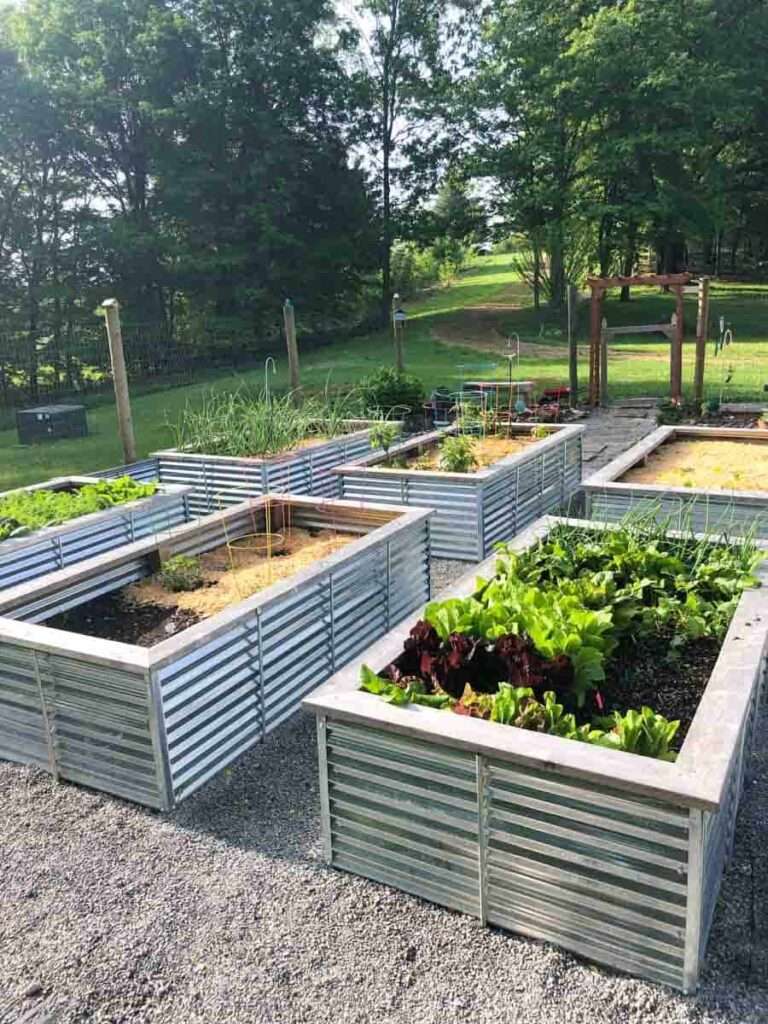
Expert Opinions on Metal Raised Beds
Professional Gardeners’ Views
Many professional gardeners prefer metal raised beds for their durability, aesthetics, and ease of maintenance. They emphasize the importance of using food-grade metals and following proper installation and maintenance practices to ensure safety and longevity.
Environmental Experts’ Perspectives
Environmental experts highlight the need for cautious selection of metal materials and the importance of using proper barriers and coatings to prevent leaching. They also emphasize the significance of regular soil and plant testing to ensure the safety of the garden.
Public Opinions and Experiences
Public opinions on metal raised beds vary. Some gardeners have had positive experiences with metal raised beds, citing their durability and visual appeal. Others have expressed concerns about potential metal leaching and have opted for alternative materials.
Research Studies on Metal Raised Beds
Scientific Studies on Metal Pollution
Several scientific studies have examined the potential metal contamination in soil and plants grown in raised beds. These studies have highlighted the importance of using food-safe metals, proper barriers, and regular testing to mitigate any health risks.
Effectiveness of Mitigation Measures
Research has also investigated the effectiveness of various mitigation measures, such as using barriers and coatings, to prevent metal leaching. While these measures have shown promise, more long-term studies are needed to fully understand their effectiveness and implications.
Long-Term Impacts on Plants and Soil Quality
There is ongoing research into the long-term impacts of metal raised beds on plant growth, soil quality, and potential accumulation of metals over time. Understanding these impacts is essential for making informed decisions regarding the use of metal raised beds in gardening.
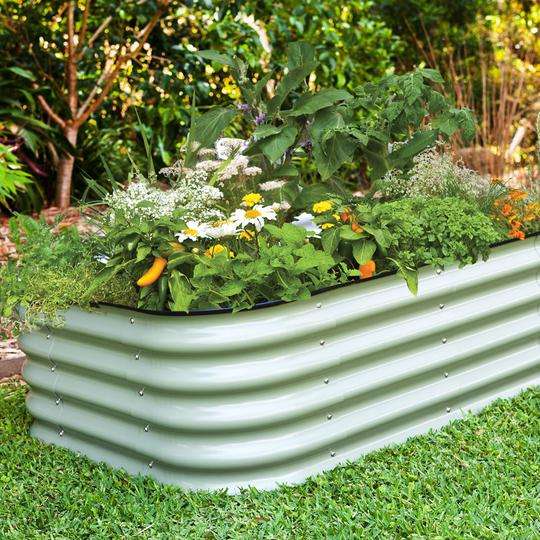
Regulations and Guidelines for Metal Raised Beds
Government Regulations on Metal Used in Gardening
Some countries have specific regulations and standards that govern the use of materials in gardening, including metal raised beds. These regulations aim to ensure the safety of users and prevent contamination of soil and plants.
Recommended Safety Guidelines for Using Metal Raised Beds
Various gardening organizations and experts provide safety guidelines for using metal raised beds. These guidelines typically advise the use of food-grade metals, proper installation, maintenance, and regular soil testing to ensure the safety of the garden environment.
Certifications and Standards to Look for
When purchasing metal raised beds, it is advisable to look for certifications or standards that indicate the use of food-grade materials, such as NSF/ANSI Standard 51 for food equipment materials. These certifications provide assurance of the safety and quality of the metal raised beds.
Metal Raised Beds DIY vs. Pre-Fabricated Options
Advantages of DIY Metal Raised Beds
- Cost Savings: DIY metal raised beds can be significantly cheaper compared to pre-fabricated options, as you have control over the materials and dimensions used.
- Customization: DIY projects allow for complete customization, ensuring the raised beds fit your specific needs and available space.
- Satisfaction and Pride: Building your own metal raised beds can be a rewarding experience, bringing a sense of accomplishment and ownership to your garden.
Benefits of Pre-Fabricated Metal Raised Beds
- Convenience: Pre-fabricated metal raised beds are ready to use, saving time and effort on construction.
- Consistency: Pre-fabricated options are usually manufactured under specific quality control measures, ensuring consistent quality and safety standards.
- Design Options: Pre-fabricated metal raised beds often come in a range of designs, sizes, and shapes, allowing for greater flexibility in garden layout.
Considerations for Installation and Assembly
Regardless of whether you choose a DIY or pre-fabricated option, it is important to follow proper installation and assembly instructions to ensure the stability and safety of the metal raised beds. This includes leveling the site, securing the beds, and considering any additional reinforcement needed.
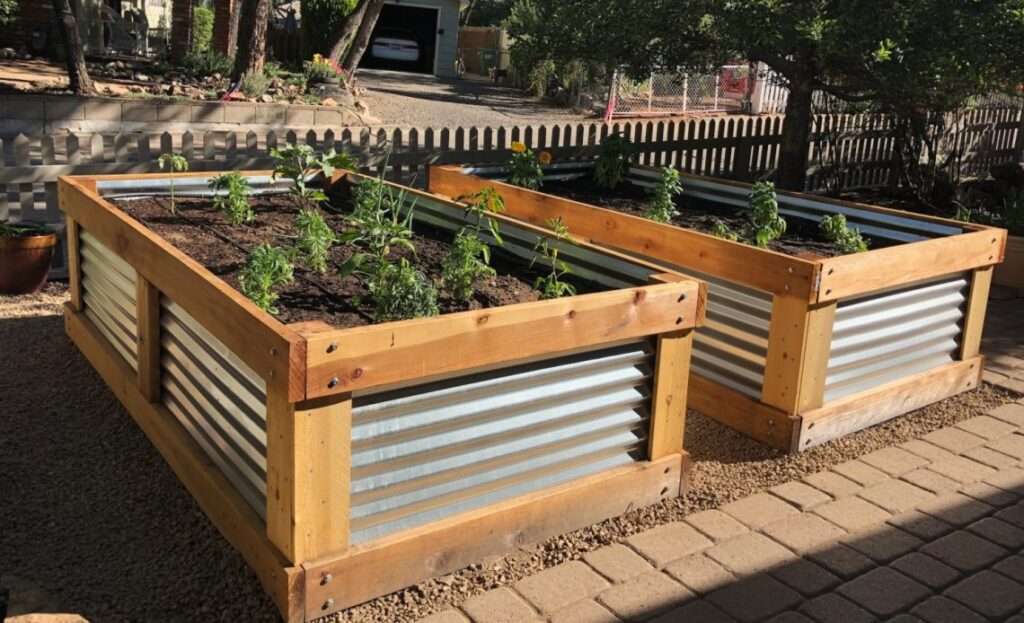
Real-Life Experiences with Metal Raised Beds
Success Stories of Gardening with Metal Raised Beds
Many gardeners have had successful experiences with metal raised beds, citing their durability, visual appeal, and ease of maintenance. These gardeners emphasize the importance of using food-safe metals and following proper installation and maintenance practices.
Problematic Experiences with Metal Raised Beds
Some gardeners have faced challenges with metal raised beds, such as concerns about metal leaching into the soil or unsightly rusting. These issues can often be attributed to improper material selection, maintenance, or failure to follow recommended safety measures.
Lessons Learned from Personal Experiences
Personal experiences with metal raised beds have highlighted the importance of thorough research, selecting reputable suppliers, and staying informed about best practices for safety and maintenance. Learning from others’ experiences can help gardeners make informed decisions and avoid potential issues.
Alternative Gardening Options for Safety-Conscious Individuals
Non-Metal Raised Bed Options
For those who have concerns about using metal raised beds, alternative non-metal options, such as wood or plastic, can provide a safe and effective solution. These materials have their own advantages and considerations, as discussed earlier.
Container Gardening
Container gardening offers a versatile and space-efficient alternative for individuals with limited outdoor space or specific safety concerns. A wide variety of plants can be successfully grown in containers, providing flexibility in location, style, and mobility.
Vertical Gardening
Vertical gardening is another space-saving option, utilizing vertical wall spaces to grow plants. This method maximizes the use of available space and can be an excellent choice for safety-conscious individuals looking to minimize contact with potentially contaminated soil.
Ground-Level Gardening
For those who prefer to avoid raised beds altogether, traditional ground-level gardening remains a viable option. By practicing proper soil testing, amendment, and maintenance, individuals can cultivate healthy plants while minimizing potential health risks.
Conclusion
When considering whether metal raised beds are safe for gardening, it is essential to weigh the pros and cons and consider individual preferences and circumstances. Metal raised beds offer durability, aesthetics, and protection against pests, but there are potential health risks associated with metal leaching and contamination. By following recommended safety guidelines, choosing high-quality materials, and regularly testing the soil and plants, it is possible to mitigate these risks and create a safe and enjoyable gardening experience. Ultimately, making informed decisions based on scientific research, expert opinions, and personal experiences will help ensure the safety and success of your garden.

